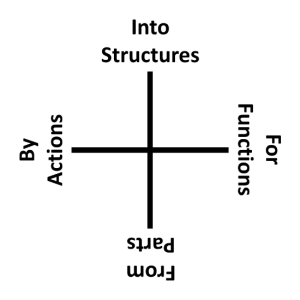 A Vision by W. B. Yeats is the focus of a large amount of scholarship for a book on the occult. It looks interesting as a source of metaphor and symbolism, and I hope to return to it at another time. There is an excellent website devoted to Yeat’s Vision, the link of which is below.
A Vision by W. B. Yeats is the focus of a large amount of scholarship for a book on the occult. It looks interesting as a source of metaphor and symbolism, and I hope to return to it at another time. There is an excellent website devoted to Yeat’s Vision, the link of which is below.
Above I show the fourfold of the Faculties: Will, Body of Fate, Mask, and Creative Mind. It is not arranged as recommended by the four elements, but by my whim.
I saw a preview of the recent movie “Kill Your Darlings” which mentioned A Vision and showed the woodcut of the Cosmic Wheel.
Further Reading:
http://en.wikipedia.org/wiki/A_Vision
Neil Mann, Matthew Gibson, and Claire Nally, eds. / Yeats’s “A Vision”: Explications and Contexts
https://academic.oup.com/liverpool-scholarship-online/book/43466#login-purchase
[*7.200]
<>


